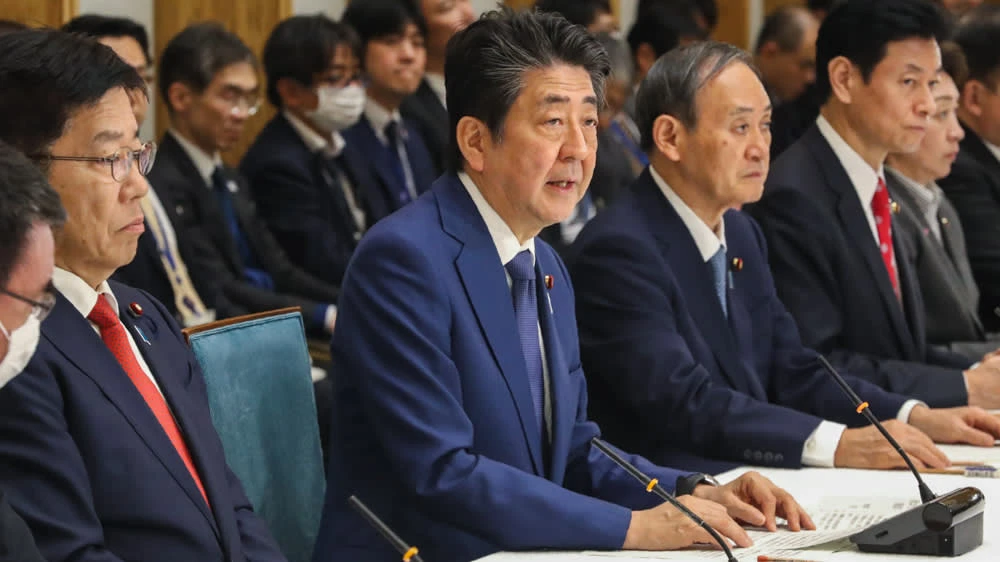
Japan stepped up its campaign against the new coronavirus, as Prime Minister Shinzo Abe launched a ministerial task force that paves the way for a possible declaration of a national state of emergency.
Abe said on Thursday that Japan will further tighten entry restrictions for international travelers, placing all visitors from Southeast Asia, the Middle East and Africa under a 14-day self-quarantine and suspending all visas and visa waiver programs for these regions.
The new measures will take effect on Saturday and bring the regions under restrictions similar to those applied to China, South Korea and the U.S. Japan also denies entry from Iran and most countries in Europe.
The number of infections in the nation's capital jumped for a second day, and concerns are growing over the risk of a major virus outbreak. This is despite a monthlong social distancing campaign launched by Abe on Feb. 27 that led to schools closing nationwide and the cancellation of concerts, sporting events and social gatherings.
A report submitted by a government expert panel on Thursday described the current situation as likely to be of widespread contagion.
"To overcome this national crisis, the government, local authorities, health care workers and the people of this country have to work together and accelerate our efforts against the coronavirus," Abe said.
Headed by the prime minister, the ministerial task force is responsible for devising a framework of policy responses to a rapid increase in cases that could threaten the economy and people's lives. The panel will work with expert advisers.
The prime minister is able to declare a state of emergency and determine the scope and duration of any lockdowns, for which local governors would have legal backing to implement.
Chief Cabinet Secretary Yoshihide Suga, the government's top spokesperson, said the current situation doesn't require the declaration of a state of emergency.
The Tokyo region reported 47 new cases on Thursday, a new daily high, bringing the capital's tally to around 250.
 A Tokyo shopper looks at an empty supermarket shelf on Thursday, a day after Gov. Yuriko Koike urged people to stay at home. (Photo by Ken Kobayashi)
A Tokyo shopper looks at an empty supermarket shelf on Thursday, a day after Gov. Yuriko Koike urged people to stay at home. (Photo by Ken Kobayashi) Tokyo Gov. Yuriko Koike on Wednesday evening requested residents to work from home and avoid going out at weekends and evenings.
The prefectures surrounding Tokyo separately announced on Thursday that they have issued requests urging residents to refrain from visiting Tokyo.
Consumers in Tokyo rushed to supermarkets on Thursday after central and local governments ramped up warnings on the spread of the coronavirus.
Some stores have been wiped out as consumers stock up on preserved foods like canned tuna, instant ramen, and frozen pizza.
On Twitter, "buying-up" was trending with people expressing frustration on not being able to find anything. Some stores, faced with a torrent of people, were even forced to implement a restriction on the number of people allowed to enter the shop at once.
Following Gov. Koike's request to refrain from weekend outings, cinemas and amusement parks in the greater-Tokyo area said that they will be closing.
Seibu Holdings announced it will once again shut down its Toshimaen and Seibuen amusement parks, which had just resumed operations on Saturday after a three-week closure.
Cinema chain Toho Cinemas said they will not open 17 cinemas in Tokyo, Kanagawa and Saitama for March 28 and 29, and halt evening showings from March 30 to April 2.




















